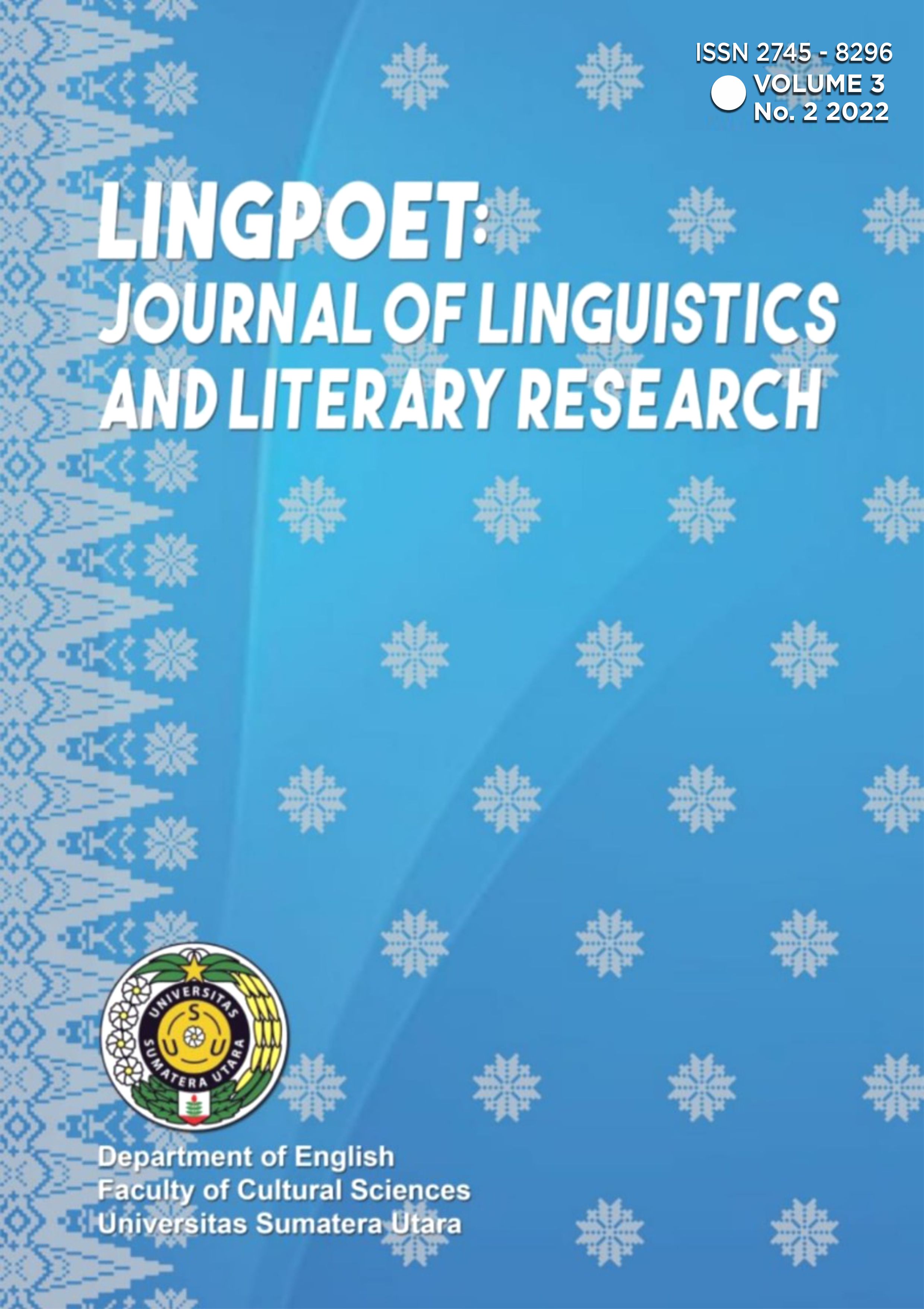Nominalization in Priyanka Chopra’s Selected Speeches
DOI:
https://doi.org/10.32734/lingpoet.v3i2.6403Keywords:
Nominalization, Nouns, Speech, Systemic Functional LinguisticsAbstract
This study aims to find out types of nominalization used in Priyanka Chopra’s selected speeches and the realizations. The selected speeches were taken from written sources and videos on the internet consisting of three speeches. This research used a descriptive qualitative method by applying theory of nominalization in Systemic Functional Linguistics by Quirk et al. The data collection techniques were conducted by applying a documentation method. The documents used to support this study were in the form of videos and transcriptions of the speeches on the internet. The results showed that not all the three types of nominalization were used in the three selected speeches. The nominalization with the gerundive noun type was used in all the three selected speeches. There were 6 gerundive nouns (14.6%) in the first speech, 7 gerundive nouns (25%) in the second speech, and 4 gerundive nouns (21%) in the third speech. The nominalization with verbal noun type was only used 1 (2.4%) among the three selected speeches which was in the first speech. Meanwhile, the deverbal noun type was used most in all the three selected speeches. There were 34 deverbal nouns (83%) in the first speech, 21 deverbal nouns (75%) in the second speech, and 15 deverbal nouns (79%) in the third speech. The nominalizations were realized by suffixations and conversions. The nominalizations were formed in the presence of the suffixes –dom, -er, –ing, -ion, -ity, -ment, and -or. Also, they were formed by conversion, such as the nouns care, cause, experience, and waste.
Downloads
References
Chomsky, N. (1970). "Remarks on Nominalization" in Jacobs, R. A. and P. Rosenbaum (eds.), Readings in English Grammar. Waltham, Mass: Ginn and Company.
Halliday, M. A. K. (1994). An Introduction to Functional Grammar (2nd ed.). London: Edward Arnold.
Halliday, M. A. K. (2000). An introduction to Functional Grammar (2nd ed.). London: Edward Arnold.
Halliday, M. A. K. & Martin, J. R. (1993). Writing Science: Literacy and Discursive Power. London/ Washington D.C.: The Farmer Press.
Halliday, M. A. K., & Matthiessen, C. M. I. M. (2004). An Introduction to Functional Grammar (3rd ed.). London: Hodder Arnold.
Miles, M. B., Huberman, A. M., & Saldana, J. (2014). Qualitative Data Analysis- A Methods Sourcebook. United States of America: SAGE Publications, Inc.
Syam, H. Y. (2004). Kiat Sukses Berpidato. Yogyakarta: Medi Jenius Lokal.
Taher, I. I. (2015). The problematic forms of nominalization in English: Gerund, verbal noun, and deverbal noun. English Linguistics Research, 4(1), 30-40.

Downloads
Published
How to Cite
Issue
Section
License
Copyright (c) 2022 LingPoet: Journal of Linguistics and Literary Research

This work is licensed under a Creative Commons Attribution-ShareAlike 4.0 International License.












